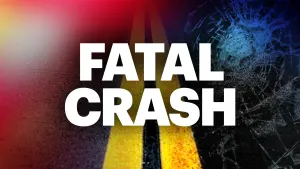More Stories
Traffic stops could face a lot more scrutiny, following the Connecticut State Police false ticket investigation.
A national law enforcement consultant is recommending monthly audits for every police officer who conducts traffic stops. But it’s unclear if police agencies have the technology – or the funding – to conduct the extra reviews.
“FALSE TICKET” INVESTIGATION
State troopers have been under the microscope for almost a year, after a Connecticut Racial Profiling Project Advisory Board audit found a “high likelihood” that troopers falsified at least 26,000 tickets. Those citations didn’t match both the Central Infractions Bureau database, and the state’s racial profiling system.
Months later, an independent investigation by former federal prosecutor Deirdre Daly cleared most troopers of intentional wrongdoing, but did point to a pattern of miscommunication and sloppy record-keeping.
“There have been significant failures by the Connecticut State Police (“CSP”) with respect to the reporting of racial profiling data,” Daly wrote. “The failures demonstrate inadequate leadership, judgment, and initiative.”
Connecticut’s new head of public safety vowed to make changes.
“We will get better,” Department of Emergency Services and Public Protection Commissioner Ronnell Higgins told reporters on Feb. 1. “We will improve.”
NEW RECOMMENDATIONS
To identify improvements, the racial profiling board turned to IntregrAssure, a consulting group that includes former Stamford and New Haven Police Chief Dean Esserman.
IntregrAssure’s new report recommends that each traffic cop in Connecticut undergo a random audit of three stops per month – plus additional “targeted assessments” for “stops involving the use of force, including the display of firearms, vehicle or person searches, handcuffing, frisks, pursuits, summary arrests, and those generating citizen complaints.” Each review would cross-reference dispatch logs, the Centralized Infractions Bureau's database, body camera footage and perhaps even license plate readers.
“The implementation of automated data entry systems that minimize human error and establishing a culture of accuracy and accountability within law enforcement agencies are also effective strategies,” the report says.
Eventually, the report suggests that artificial intelligence could “learn” problematic traffic stop patterns – and flag them in real-time.
“Going further, AI could also be employed to assess the ‘apparent’ race, age, and gender of a driver using advanced image recognition algorithms,” the IntegrAssure report states. “While there are serious ethical and accuracy considerations to address in the development of such technology, the goal would be to reduce subjective human reporting errors. This AI would not replace human discretion but would serve as a supplementary tool to provide officers with data that may assist in unbiased reporting.”
WHAT’S NEXT?
The Connecticut Racial Profiling Prohibition Project will spend the next few months examining the recommendations.
“We are now going to begin a process where we engage our local police partners and our Chiefs of Police Association in a discussion around recommendations in this report,” said project manager Ken Barone. “This report is intended to be the start of our conversation, not the end of our conversation.”
Some police agencies said they already conduct audits, but the IntergrAssure report said the process needs to be uniform across the state.
“All of the issues that have been uncovered relative to the traffic stop issue have resulted from front-line supervisors auditing their personnel,” said state police Lt. Col. Mark Davison, a member of the advisory board.
Higgins is also on the board.
“As DESPP and Commissioner Higgins move forward, the agency is using the framework and recommended remedial measures outlined in the independent investigation and report compiled by Deidre Daly and her team at Finn Dixon & Herling,” said DESPP spokesperson Rick Green.
Barone said the next step is determining how much the additional audits could cost, including technology upgrades.
“We have to start to try to understand what is feasible, where we'd like to be versus where we can be,” he said.
Additional issues may be uncovered by two federal investigations that are still ongoing into the “false” ticket audit. In addition, state lawmakers are considering tougher penalties for falsifying traffic stops.
More from News 12
0:54

Bridgeport city bus strikes wall, 5 vehicles outside train station
2:24

Record number of travelers and weather impact holiday travel
0:23

Police: 18-year-old killed after crashing on Merritt Parkway in Stratford
2:31

Massive wind-blown holiday decoration damages cars in Stamford’s Harbor Point
0:21

Car crashes after police caught driver speeding in Orange
0:23
